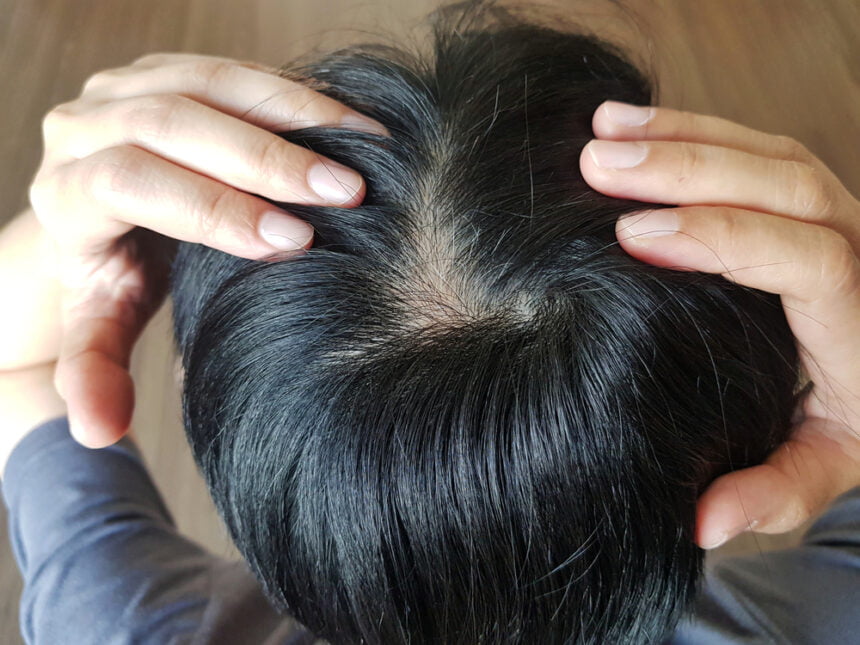We all lose plenty of hair for natural reasons, and this level can fluctuate throughout the year. However, if you?ve noticed your hair looking noticeably thinner of late, it?s time to investigate the matter and consider ways to try to get your locks looking and feeling fuller and fresher. Here are some tips to help you address your hair loss today.
Look into Underlying Causes
If you?re worried about thinning hair or a noticeable increase in the amount of hair you?re shedding, look into potential underlying causes. There may be health issues happening that are affecting your hair. Talk to your doctor about your hair loss and any other symptoms you?ve noticed so they can help discover what may be going on.
Your health practitioner will likely want you to have some blood tests done. These can check for conditions that may cause hair loss, such as a hormonal imbalance, thyroid imbalance, autoimmune disease, anemia, scalp infection, chronic illness, etc.
Also, investigate whether any of the medications you?re currently taking, whether prescribed or supplemental, might be negatively impacting your hair. Once you?ve addressed any underlying problem, you?ll hopefully notice that the hair loss halts and your tresses return to their prior state.
Examine Your Diet
Another common reason behind hair loss is dietary mistakes. Eat a healthy, balanced diet to give your body all the vitamins and minerals its needs, which, in turn, provides hair with the building blocks required to grow and stay strong. Protein is particularly vital for stopping both hair loss in women and men. Hair is made from protein, so if you don?t get enough of this in your diet, your locks, not to mention various other bodily functions, will likely begin to suffer.
Up your protein intake by consuming more lean meat, seafood, eggs, dairy, legumes, nuts, and leafy greens. If you?re vegetarian or vegan and don?t get enough protein via your typical diet, research quality protein powders filled with all the essential vitamins and minerals you need to stay well.
On top, ensure you?re consuming enough complex carbohydrates during the week, as these provide hair with energy to grow. Look to increase how much good fat you digest, too. These contain omega-3s, which are necessary for bouncing locks.
Cut Back on Stress
Stress has many negative effects on our physical, mental, and emotional wellbeing. One of the negative impacts of too much worry and anxiety is hair loss and other hair-related issues. Stress tends to raise androgen levels, which can cause hair to fall out, plus it can trigger or exacerbate scalp disturbances, such as dandruff or head-based psoriasis. Furthermore, stress often disrupts our eating habits and messes with gut health and the digestive system in general. In turn, this can negatively impact tresses.
You may find, too, that thinning hair causes you to feel more self-conscious about yourself and lose some confidence. If so, this can further increase your stress and lead to a vicious cycle that?s tough to combat. To reduce symptoms, focus on self-care methods such as meditation, deep breathing, exercise, stretching, proper sleep, and looking for ways to avoid the situations or people that cause you the most angst.
Drink Plenty of Water
We?ve all heard how essential it is for us to drink plenty of water and stay hydrated. But did you know how crucial H2O is for hair health? Dehydration can lead to thinning hair because growing hair shafts are made up of a large proportion of water, just as so much of our body is.
As you can imagine, if you?re not hydrated, there?s not enough moisture to support the creation of new cells or the growth of hair strands. The right amount of daily water varies from person to person, depending on body size and other factors, but aim to drink at least two liters per day.
Consider the Tools and Treatments You Use
If you?ve tried all the above ways to address hair loss and you?re still having problems, consider whether you might be harming your locks with the treatments you put them through or the tools or products you use.
You may have subjected your hair to too many bleaching, blow-drying, or straightening sessions or be affecting tresses or your scalp negatively with low-quality shampoo, conditioner, or styling products, etc. Test to see if making a change in this area makes a positive difference.
Hair loss can make us feel less than our best and is cause for concern. Try the tips above over the coming months and take note of results as you go to see what works for you. Be patient, and get help from specialists as needed.

